Reviewers Directory
(Total: 54)
| Avatar | Reviewer | Topics | Settings | Study Types | Total Reviews |
|---|---|---|---|---|---|
 Reviewer | Alejandra Jáuregui Chair of the Department for Physical Activity and Healthy Lifestyles Instituto Nacional de Salud Pública Mexico | Implementation science 24 hours Inequalities | School Community Transport | Epidemiology Intervention Policy (e.g. policy or guideline development) | 17 16 – |
 Reviewer | Ales Gaba Associate Professor Palacky University Olomouc Czechia | 24 hours Monitoring and data systems Other (please specify) | School Healthcare Not Applicable | Epidemiology Intervention Measurement or surveillance | 22 6 – |
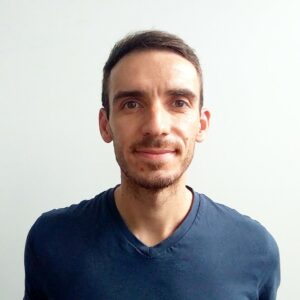 Reviewer | Antoine Noel Racine Associate professor Université Côte d’Azur France | Systems / cross-sector partnerships Implementation science Economics Co-benefits/ non-health benefits/ SDGs | Community Sport Healthcare Whole System | Intervention Economic evaluation Policy (e.g. policy or guideline development) Practice | 14 19 – |
 Reviewer | Armando G. Olvera Profesor investigador de tiempo completo Universidad Autónoma de la Ciudad de México Mexico | Implementation science Inequalities Monitoring and data systems | School Transport Whole System | Epidemiology Measurement or surveillance Policy (e.g. policy or guideline development) | 17 11 – |
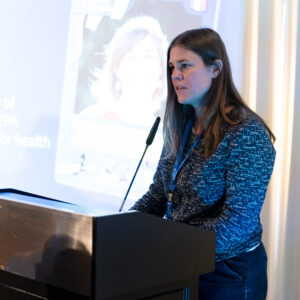 Coordinator | Aurélie Van Hoye Professor Université de Lorraine France | Systems / cross-sector partnerships Implementation science Co-benefits/ non-health benefits/ SDGs | Community Sport Whole System | Intervention Method development Policy (e.g. policy or guideline development) | 27 8 – |
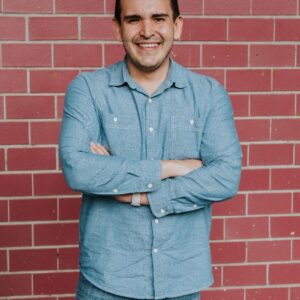 Reviewer | Cesar Hernandez-Alcaraz Posdoctoral Student Instituto Nacional de Salud Pública Afghanistan | 24 hours Mental Health Inequalities | Community Family Whole System | Epidemiology Measurement or surveillance Policy (e.g. policy or guideline development) | 14 16 – |
 Reviewer | Charlotte Lund Rasmussen Research Fellow Curtin University Australia | 24 hours Inequalities Monitoring and data systems | School Workplace Sport | Epidemiology Method development Measurement or surveillance | 23 9 – |
 Reviewer | Citlali González-Alvarez Research INSP Mexico | 24 hours Inequalities Other (please specify) | School Healthcare Not Applicable | Epidemiology Practice Other | 11 17 – |
 Reviewer | Corneel Vandelanotte Professor Central Queensland University Australia | 24 hours New Technology Other (please specify) | Workplace Community Not Applicable | Intervention Measurement or surveillance Other | 18 10 – |
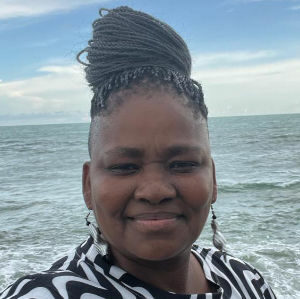 Reviewer | Dawn Tladi Senior Lecturer University of Botswana Botswana | 6 18 – | |||
 Reviewer | Elroy Aguiar Assistant Professor in Exercise Science The University of Alabama United States | 24 hours New Technology Monitoring and data systems | School Workplace Community | Epidemiology Intervention Method development Measurement or surveillance | 23 12 – |
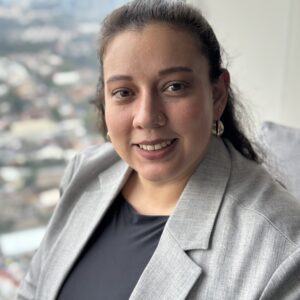 Reviewer | Eugen Resendiz Postdoctoral Scholar INSTITUTO TECNOLOGICO Y DE ESTUDIOS SUPERIORES DE MONTERREY Mexico | Systems / cross-sector partnerships Co-benefits/ non-health benefits/ SDGs Monitoring and data systems Other (please specify) | Community Transport Whole System | Epidemiology Method development Policy (e.g. policy or guideline development) | 15 12 – |
 Reviewer | Eugene Fitzhugh Associate Professor University of Tennessee, Knoxville United States | Systems / cross-sector partnerships Implementation science Monitoring and data systems | School Workplace Community | Epidemiology Measurement or surveillance Policy (e.g. policy or guideline development) | 16 16 – |
 Reviewer | Eun-Young Lee Assistant Professor Queen’s University Canada | Systems / cross-sector partnerships Inequalities Co-benefits/ non-health benefits/ SDGs | School Family Transport Whole System | Epidemiology Measurement or surveillance Policy (e.g. policy or guideline development) | 12 12 – |
 Reviewer | Fernanda Gabler Teaching Assistant University of Glasgow United Kingdom | 24 hours New Technology Inequalities Co-benefits/ non-health benefits/ SDGs | Community Family Healthcare | Intervention Method development Measurement or surveillance | 10 17 – |
 Reviewer | Fitria Dwi Andriyani Lecturer Yogyakarta State University Indonesia | 24 hours Mental Health New Technology Co-benefits/ non-health benefits/ SDGs | School Community Family | Epidemiology Intervention Measurement or surveillance | 6 15 – |
 Reviewer | Gaonyadiwe George Mokone Senior Lecturer University of Botswana Botswana | Implementation science New Technology Other (please specify) | School Sport Healthcare | Epidemiology Intervention Measurement or surveillance | 15 12 – |
 Reviewer | Gaonyadiwe Lubinda-Sinombe lecturer University of Botswana Botswana | Implementation science Mental Health Inequalities | Workplace Community Healthcare | Intervention Measurement or surveillance Other | – |
 Reviewer | Gemma Ryde Lecturer University of Glasgow United Kingdom | Implementation science Mental Health Co-benefits/ non-health benefits/ SDGs | Workplace Community Healthcare | Intervention Measurement or surveillance Policy (e.g. policy or guideline development) Practice | 18 11 – |
 Reviewer | George Nassis Associate Professor United Arab Emirates University United Arab Emirates | Implementation science New Technology Monitoring and data systems | Community Sport Whole System | Intervention Economic evaluation Policy (e.g. policy or guideline development) | – |
 Reviewer | Gregore Mielke Senior Lecturer School of Public Health, The University of Queensland Australia | 24 hours Economics Inequalities | Community Sport Family Healthcare | Epidemiology Method development Measurement or surveillance | 12 16 – |
 Reviewer | Harriet Koorts Associate Professor Institute for Physical Activity and Nutrition (IPAN), Deakin University Australia | Systems / cross-sector partnerships Implementation science Inequalities | School Community Whole System | Intervention Policy (e.g. policy or guideline development) Practice | 21 10 – |
 Reviewer | Jacqueline Mair Senior Scientist Singapore-ETH Centre Singapore | Implementation science 24 hours New Technology | Workplace Community Family Not Applicable | Intervention Measurement or surveillance Other | 13 14 – |
 Reviewer | Jamile Codogno Associate Professor Sao Paulo State University Brazil | Systems / cross-sector partnerships Economics Monitoring and data systems | Community Sport Healthcare | Intervention Economic evaluation Measurement or surveillance | 12 12 – |
 Coordinator | Jasper Schipperijn Professor University of Southern Denmark Denmark | Systems / cross-sector partnerships Implementation science 24 hours New Technology Co-benefits/ non-health benefits/ SDGs Monitoring and data systems | School Community Transport Whole System | Intervention Method development Measurement or surveillance Policy (e.g. policy or guideline development) Practice | 47 13 – |
 Reviewer | Jenny Veitch Professor Deakin University Australia | Inequalities Co-benefits/ non-health benefits/ SDGs Other (please specify) | Community Family Transport | Epidemiology Intervention Practice | 2 7 – |
 Reviewer | Jiani Ma Research Fellow Institute for Physical Activity and Nutrition, Deakin University Australia | Systems / cross-sector partnerships Implementation science Other (please specify) | School Community Whole System | Epidemiology Intervention Practice | 15 12 – |
 Reviewer | Joey Murphy Lecturer in Physical Activity and Public Health University of Bristol United Kingdom | Systems / cross-sector partnerships Implementation science Mental Health Other (please specify) | Community Sport Whole System | Epidemiology Method development Measurement or surveillance | 13 11 – |
 Reviewer | Jonathan Cagas Associate Professor University of the Philippines Diliman Philippines | Mental Health Inequalities Other (please specify) | School Community Sport | Measurement or surveillance Practice Other | 11 15 – |
 Reviewer | JOYCE NDABI DR university of dar es salaam Tanzania | Systems / cross-sector partnerships Mental Health Monitoring and data systems | School Community Whole System | Epidemiology Intervention Measurement or surveillance | 14 13 – |
 Reviewer | Julissa Ortiz Brunel Early career researcher Universidad de Guadalajara | 24 hours Inequalities Co-benefits/ non-health benefits/ SDGs Other (please specify) | School Community Transport | Epidemiology Intervention Method development Measurement or surveillance | 11 19 – |
 Reviewer | Kathia Larissa Quevedo Researcher National Institute of Public Health Mexico | Implementation science 24 hours New Technology Inequalities Co-benefits/ non-health benefits/ SDGs Monitoring and data systems | School Community Sport | Epidemiology Intervention Measurement or surveillance Policy (e.g. policy or guideline development) Practice | 14 14 – |
 Reviewer | Katrina Messiha Marie Skłodowska–Curie PhD fellow Amsterdam UMC Netherlands | Systems / cross-sector partnerships Implementation science Inequalities | Community Healthcare Whole System | Method development Policy (e.g. policy or guideline development) Practice | 11 13 – |
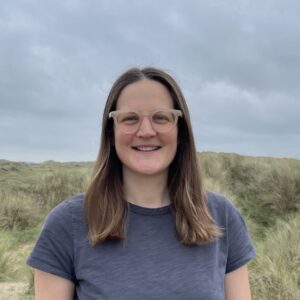 Reviewer | Kim Straun Lecturer in Child Health, Nutrition and Physical Activity University of Bristol | Implementation science 24 hours New Technology | School Family Healthcare | Intervention Measurement or surveillance Practice | 9 19 – |
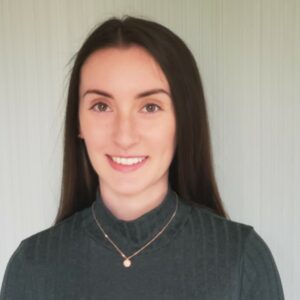 Reviewer | Lauren McCaffrey Marie Curie PhD Fellow Glasgow Caledonian University United Kingdom | Systems / cross-sector partnerships Mental Health Co-benefits/ non-health benefits/ SDGs | Workplace Community Healthcare | Intervention Practice Other | 14 16 – |
 Reviewer | Leigh Vanderloo Scientific Director ParticipACTION Canada | Implementation science 24 hours Mental Health Other (please specify) | School Sport Family | Intervention Measurement or surveillance Policy (e.g. policy or guideline development) | 14 12 – |
 Reviewer | Louise de Lannoy Executive Director Outdoor Play Canada Canada | Systems / cross-sector partnerships Implementation science Co-benefits/ non-health benefits/ SDGs | Community Sport Whole System | Intervention Measurement or surveillance Policy (e.g. policy or guideline development) | 22 5 – |
 Reviewer | Malebogo Monnaatsie Lecturer University of Botswana Botswana | Implementation science 24 hours New Technology | School Workplace Healthcare | Epidemiology Intervention Measurement or surveillance | 14 14 – |
 Reviewer | Marla Frances Mallari Department Chair University of the Philippines/College of Human Kinetics Philippines | Implementation science Monitoring and data systems Other (please specify) | School Sport Healthcare | Intervention Method development Measurement or surveillance | 13 19 – |
 Reviewer | Matthew Ahmadi Research Fellow University of Sydney Australia | 24 hours New Technology Monitoring and data systems | School Community Healthcare | Epidemiology Method development Measurement or surveillance | 13 18 – |
 Reviewer | Maxime Luiggi Maître de conférences Aix-Marseille University France | Inequalities Co-benefits/ non-health benefits/ SDGs Monitoring and data systems | School Sport Not Applicable | Epidemiology Measurement or surveillance Other | 9 20 – |
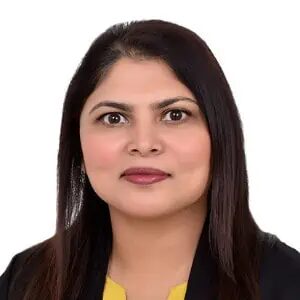 Reviewer | Mumtaz Meeran Senior Specialist Abu Dhabi Public Health Centre United Arab Emirates | Systems / cross-sector partnerships Mental Health Inequalities | Workplace Community Healthcare | Intervention Policy (e.g. policy or guideline development) Practice | 13 14 – |
 Reviewer | Nur Dania Rosaini PhD Student University of Glasgow United Kingdom | Mental Health Inequalities Co-benefits/ non-health benefits/ SDGs Monitoring and data systems | Community Sport Family Healthcare | Intervention Method development Measurement or surveillance Practice | 13 13 – |
 Reviewer | Olivier Riquier Postdoctoral researcher Université Côte d’Azur France | Systems / cross-sector partnerships Implementation science Co-benefits/ non-health benefits/ SDGs | Community Healthcare Whole System | Method development Measurement or surveillance Policy (e.g. policy or guideline development) | 9 16 – |
Reviewer | Reginald Ocansey Professor University of Ghana, Legon Ghana Ghana | Mental Health Co-benefits/ non-health benefits/ SDGs Monitoring and data systems | School Sport Family Healthcare | Intervention Measurement or surveillance Practice | 8 19 – |
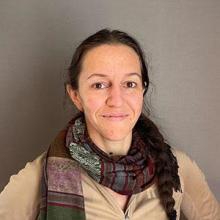 Reviewer | Salomé Aubert Vice President Active Healthy Kids Global Alliance (AHKGA) | Inequalities Co-benefits/ non-health benefits/ SDGs Monitoring and data systems | School Community Whole System | Method development Measurement or surveillance Policy (e.g. policy or guideline development) | 18 13 – |
 Reviewer | Sarah Edney Senior Research Fellow National University of Singapore Sierra Leone | Implementation science Mental Health New Technology | Community Whole System Not Applicable | Epidemiology Intervention Method development | 8 17 – |
 Reviewer | Sarah Kennedy Senior Lecturer, Sport, Health and Physical Education Western Sydney University Australia | Systems / cross-sector partnerships Implementation science Other (please specify) | School Sport Family | Intervention Policy (e.g. policy or guideline development) Practice | 7 22 – |
 Reviewer | Sitong Chen Dr Victoria University Australia | 24 hours Mental Health Economics Monitoring and data systems | School Community Transport Whole System | Epidemiology Economic evaluation Measurement or surveillance Policy (e.g. policy or guideline development) | 11 16 – |
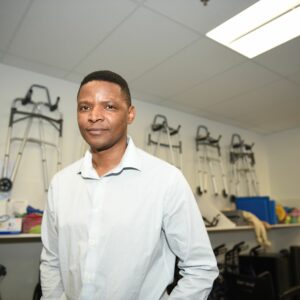 Reviewer | Taru Manyanga Assistant Professor University of Northern British Columbia Canada | 24 hours Mental Health Inequalities | School Community Healthcare | Epidemiology Intervention Measurement or surveillance | 13 13 – |
 Reviewer | Thibaut Derigny Lecturer (MCF) Université de Pau et des Pays de l’Adour France | 24 hours New Technology Monitoring and data systems | School Sport Transport | Epidemiology Intervention Measurement or surveillance | 6 20 – |
 Coordinator | Tony Baker Managing Director Tecology Consulting Group Brazil | – | |||
 Reviewer | Tracy Kolbe-Alexander Professor University of Southern Queensland Australia | Systems / cross-sector partnerships Implementation science Inequalities | Community Transport Whole System | Intervention Policy (e.g. policy or guideline development) Practice | 16 14 – |
 Reviewer | Yves Palad Associate Professor University of the Philippines Philippines | Systems / cross-sector partnerships Inequalities Monitoring and data systems | School Community Family Healthcare | Epidemiology Intervention Measurement or surveillance Practice | 11 14 – |
Abstract Guidelines
Please note: All abstracts are to be submitted in English. A lead author can submit a maximum of 2 abstracts. They may also be named on other abstracts as an additional author or presenter.
Communications: All communication regarding receipt and notice of your abstract will be via email. Please refer to our key dates page for important deadlines. Notifications will be sent on or before the dates specified there. An automated email will be sent with a unique Abstract ID. Please use this number in any communications. If you need to withdraw an abstract submission, please do so using the ‘Withdraw’ option on your Abstract dashboard.
Final Abstract Format: In an effort to accommodate as many presenters as possible, ISPAH has implemented a policy where only one abstract per author is selected for an oral or short-oral presentation. Those whose submissions are not included in the oral or short-oral sessions will have the opportunity to participate as poster presenters.
The final format of your abstract has been detailed in your abstract outcome email. Details can also be viewed on your Abstract dashboard.
Important Note: The short-oral format is a late addition to the programme. On the user dashboard we are not able to change the ‘labelling’ on any e-poster that has been changed to a Short-Oral. All Short -Orals and physical posters will continue to say E-poster on the dashboard. Please be sure to look at the session type to be sure whether you should prepare a short oral or a hard-copy poster.
Important Note: The presenting author MUST be registered for the Congress and is responsible for the registration fees (and accommodation and travel costs where applicable). If there is a change in the presenting author, please notify the Organizing Committee by sending an email via our helpdesk form in your abstracts dashboard no later than August 26, 2024.
If the presenting author of a standard Oral or Short- Oral presentation is not registered by August 26, the submission will be removed from the programme.
Guidelines for Oral and E-poster abstracts
Abstracts must not exceed 300 words, including headings (excluding title or authors) following the structured format (headings) as closely as possible, as shown below.
The title should be no longer than 15 words.
The body of the abstract should be structured using the following headings:
Research Abstracts
Background:
Purpose:
Methods:
Results:
Conclusions:
Practical implications:
Funding:
Practice/Policy Abstracts
Background:
Program Delivery or Policy Components:
Evaluation:
Conclusions:
Practical implications:
Funding:
Guidelines for Symposia abstracts
Regular Symposium
The regular symposia will have a Chair who will provide a short introduction/background on a specific topic followed by 3-5 presenters, followed by a discussion actively involving the audience, often led by a discussant or a moderator. The chair can act as discussant or moderator, if the chair is not one of the presenters.
Title: The title should represent the overall topic (max 15 words)
Purpose: State the primary purpose of this symposium.
Description: Include an overall symposium description
Chair (Name and Affiliation):
Presenter 1 (Name and Affiliation):
Presenter 2 (Name and Affiliation):
Presenter 3 (Name and Affiliation):
Discussant/moderator (Name and Affiliation):
After the overall abstract for the symposium, the chair will need to include the individual abstracts for each presenter. Each presenter should prepare an individual abstract following the same format as the oral and E-poster abstracts (see above).
Debate Symposium
The debate symposia will have a Chair or Moderator who will provide an introduction on a specific controversial topic. This will be followed by affirmative and opposing presenters (1 or 2 for each side), who will provide arguments “for” and “against” the debate topic area. Each side should present their initial stance, which will be followed by a rebuttal from each side. If there are two presenters for each side, one presenter should provide the initial presentation while the other should present the rebuttal. This will be followed by a 30-minute discussion.
Title: The title should represent the topic area and its controversial nature.
Purpose: A statement of the purpose of the debate, emphasizing what is innovative about the topic (including a brief description of the topic)
Rationale: Why is this topic worthy of addressing at this conference and why this is a debatable topic?
Chair (Name and Affiliation): Introduction to Debate
Affirmative Presentation(s) [Name(s) and Affiliation(s)]: Title and short description
Opposing Presentation(s) [Name(s) and Affiliation(s)]: Title and short description
Alternate view Presentation [optional] [Name(s) and Affiliation(s)]: Title and short description
Conclusions or Outcomes: Identify the key anticipated conclusions or outcomes from this innovative debate.
Guidelines for workshop abstracts
The workshop objectives should support participants in the development of skills and knowledge in an innovative area of interest.
Abstracts for workshops should be no longer than 300 words (not including authors or title) and follow the guidelines below as closely as possible. The title should be brief, no more than 15 words.
Title: The title should represent the overall topic area being discussed.
Purpose: State the primary purpose of the workshop.
Learning Objectives: Include an overall workshop description along with the key learning objectives (ideally at least three learning objectives). The learning objectives should be written with an action verb describing what the participant will learn or be able to do upon the completion of the workshop.
Learning Objective 1: Please include short description
Learning Objective 2: Please include short description
Learning Objective 3: Please include short description
Target Audience: Include a brief summary of the target audience for this workshop.
Organization and Method of Presentation: Include a brief summary of the main topics/ideas that will be discussed and the method of presentation/discussion (e.g., practical application of techniques, small group discussion, co-creation, sharing circles, case studies and demonstration, problem-solving) to accommodate different learning styles.
Contact our Helpdesk
If you’re experiencing issues, have questions, or need support, please fill out the form below with as much detail as possible. Your prompt and accurate response will enable our dedicated team to provide timely and efficient assistance.
Please note: Inquiries should be sent in English only. Our support function is managed by ISPAH volunteers. For common questions, please check our FAQ page first.
Reviewers Guidelines
ISPAH congress – abstract review instructions
Scoring of abstracts
We have tried to keep the review process simple with a 5-star scoring system for 5 questions:
- Contribution to the congress theme (see https://congress2024.ispah.org/congress-theme/ for more information)
- Originality/Novelty (it is clear what this abstract contributes to the field?)
- Quality of the work (are the methods well-described and conclusions sound?)
- Overall abstract clarity and key message (is it clear what message the authors are sending?)
- Practical implications for policy and/or practice (how ‘useful’ is the work for the real world of physical activity promotion?)
You will make our work of selecting the best abstracts for an oral presentation easier by using the whole scale. I.e. don’t feel bad to only give 1 or 2 stars if you think a certain aspect of the abstract is not great.
Diversity, equity, and inclusion
The ISPAH Congress is a global congress, and abstracts should be assessed keeping in mind that ISPAH encourages diversity and inclusion and that research opportunities are not equal across countries.
For example, large scale RCT studies with device-based measures of physical activity are rarely possible in Low- and Middle-Income Countries, whereas a ‘simple cross-sectional survey’ might be very novel, with a large impact, if no data existed beforehand.
Presentation type
After scoring, you can select the presentation type (oral, e-poster or oral/e-poster) you suggest. We will have space for 200-250 oral presentations (i.e. only 20-25% of submissions), so only suggest an oral presentation for those abstracts that really impressed you. The other accepted abstracts will be offered an E-poster. Suggest ‘reject’ only for those abstracts you feel are outside the main scope (see below).
Main scope of the ISPAH 2024 congress
As you probably are aware, ISPAH congresses focus primarily on public health, health promotion, and physical activity as a health enhancing tool (e.g. exercise as medicine). ISPAH is not a sports medicine congress, so studies on athletes’ performance or injury recovery are not a priority, but can be relevant if they have clearly stated implications for the general population.
COVID-19 related abstracts
To be considered for an oral presentation, abstracts focusing on COVID-19 need to have a clear ‘lessons learnt’ for the post-pandemic situation.
Unable to review an assigned abstract – conflict of interest
We tried to assign abstracts to reviewers based on your preferences, but this was a manual process (we need an AI-tool for this) and the fit with your expertise will not always be perfect. It is also likely that we have overlooked co-authorships for some abstracts.
If you have been allocated an abstract that you really are not able to assess, or if you have a conflict of interest, please contact us by selecting the ‘Contact Coordinators’ button on the Abstract and selecting ‘Conflict of Interest’. Please include some details of the conflict for the abstract you cannot review, and we will re-assign it.
What should you consider a conflict of interest?
- If you are a co-author on the abstract
- If you are actively collaborating with one or more of the author(s) on similar work.
Working with (or having worked with) one or more of the authors on an unrelated project is not a conflict of interest.
Register as an abstract reviewer
